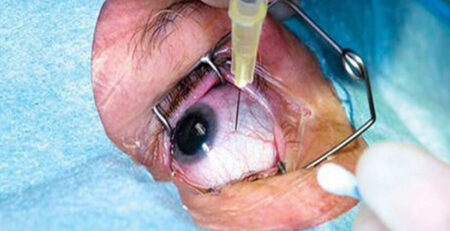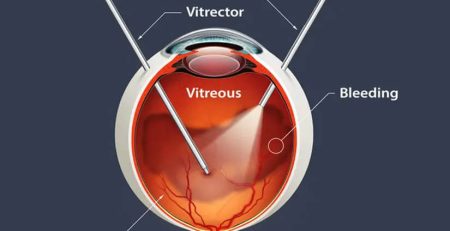Will Retinal Detachment Heal on Its Own?
Are you experiencing sudden flashes of light or a grey curtain obstructing your vision?
Your eyes are the windows to your soul, so keep them safe and sound. This quote couldn’t be more accurate as your eyes are one of the most precious organs in your body. However, sometimes unforeseen circumstances can affect your eyesight, one such condition being a retinal detachment.
Retinal detachment is a serious condition where the retina detaches from the tissue beneath it, causing blurry vision and eventual blindness if left untreated. Although this condition is serious, the good news is that it can be treated under the guidance of a good eye specialist in Delhi.
But the question remains, will retinal detachment heal on its own? Is there any surgery to correct it?
Let’s find out!
What is Retinal Detachment?
Before moving forward, what is retinal detachment?
Retinal detachment is a medical condition that occurs when the retina, the light-sensitive layer of tissue at the back of the eye, becomes detached or pulled away from its normal position. This detachment can lead to vision loss or blindness if not promptly treated.
There are three types of retinal detachment: rhegmatogenous, tractional, and exudative.
Symptoms of retinal detachment include sudden flashes of light, a sudden increase in the number of floaters or small specks that drift across your field of vision, and a curtain-like shadow that starts appearing in your peripheral vision and gradually spreading toward the centre of your vision.

Does Retinal Detachment Heal On Its Own?
No, retinal detachment does not typically heal independently and requires medical intervention to prevent permanent vision loss. Without prompt treatment, the detachment can progress and result in irreversible damage to the retina, leading to partial or complete blindness.
In some cases, small retinal tears may not progress to a full detachment, if caught in time and lasered immediately. However, this is not always the case; once the retina has detached, it cannot reattach itself without medical intervention.
The specific treatment recommended by the eye doctor will depend on several factors, including the type and severity of the detachment, the location of the tear or hole, and the overall health of the patient’s eye.
Treatment for Retinal Detachment
Treatment for retinal detachment typically involves surgery to repair the tear or hole in the retina and reattach it to the underlying tissue. Contacting the best eye doctor in Delhi will help you to find the right treatment.
1- Scleral Buckle Surgery
In this procedure, a silicone band is placed outside the sclera, or the white of the eye, to support the retina and bring it back into place.
2- Vitrectomy
During a vitrectomy, the eye specialist in Delhi makes small incisions in the eye and uses tiny instruments to remove the vitreous gel. The space left behind is then filled with intraocular gas or silicon oil, which helps to push the retina back into place. The body eventually absorbs the gas, and the eye returns to its normal state. The oil needs a small surgery for removal at a later date.
3- Pneumatic Retinopexy
This procedure involves injecting an intraocular gas bubble into the eye to push the retina back into place. You need to maintain a certain position for several days to allow the bubble to push the retina back in place and close the tears properly.
Dr Anisha Gupta, the best eye specialist in Delhi, will determine your eye condition and prescribe a suitable surgical procedure.
If you are experiencing vision problems or have been diagnosed with a retinal condition, talk to your eye specialist for the right treatment option.
Don’t take any chances with your eyesight. If you suspect you may have retinal detachment, schedule an appointment with Dr Anisha Gupta, the best eye specialist in Delhi, today.











